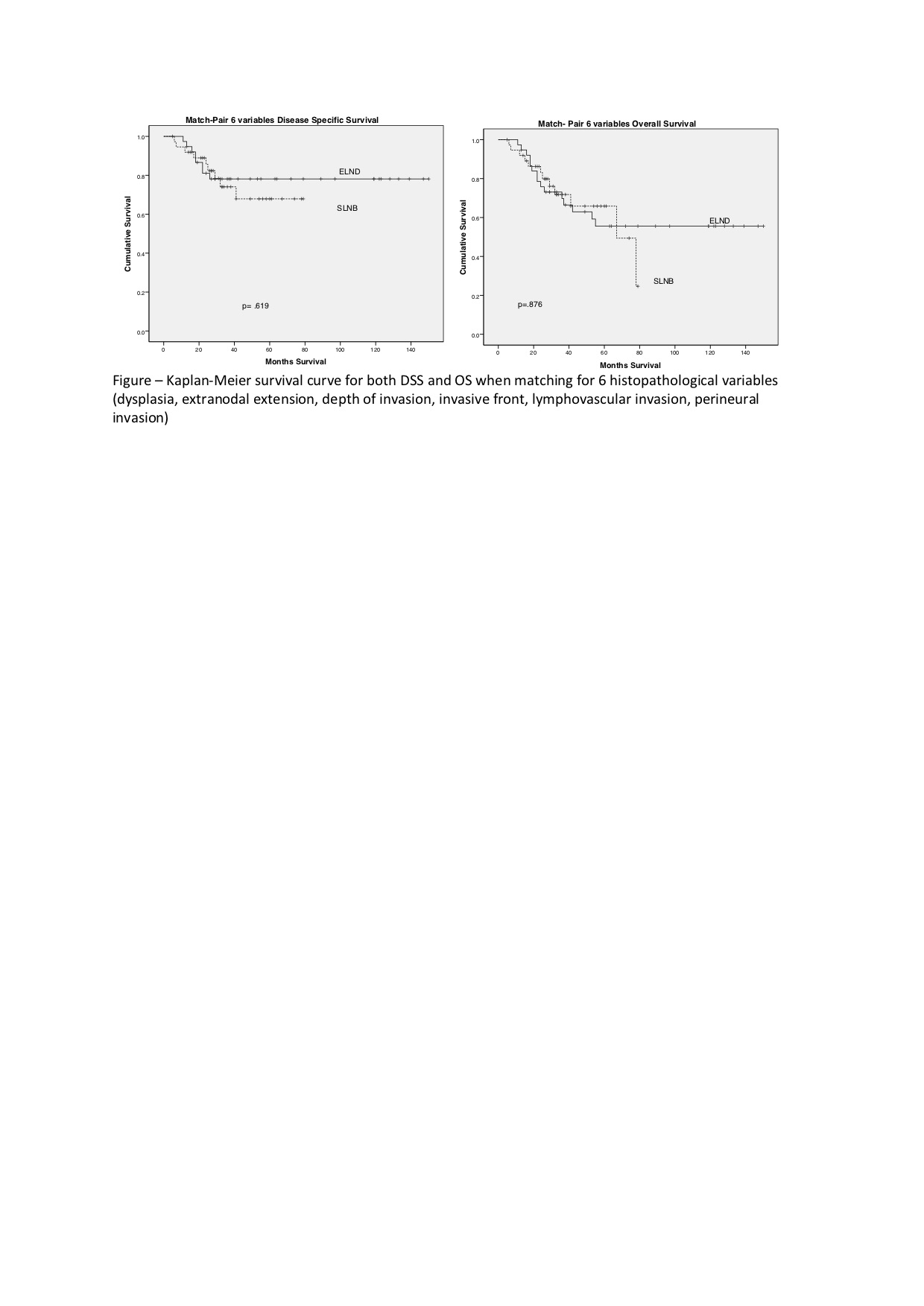Survival in node positive early oral SCC: sentinel node biopsy versus elective lymphadenectomy
Jeremy McMahon,
United Kingdom
PO-0109
Abstract
Survival in node positive early oral SCC: sentinel node biopsy versus elective lymphadenectomy
Authors: Jeremy McMahon1, Stuart Hislop2, Farhan Zubair3, Scott McNicol4, James McCaul1, Craig Wales1, Mark Ansell1
1NHS Greater Glasgow and Clyde Health Board, Maxillofacial Surgery, Glasgow, United Kingdom; 2Ayrshire and Arran Health Board, Maxillofacial Surgery, Kilmarnock, United Kingdom; 3University of Glasgow, Medical School, Glasgow, United Kingdom; 4Private Consultant Software Engineer, Not Applicable, Glasgow, United Kingdom
Show Affiliations
Hide Affiliations
Purpose or Objective
Patients undergoing sentinel node biopsy (SLNB) for early oral squamous cell carcinoma (OSCC) who harbour occult metastases (pN+ve) may be at greater risk of mortality, due to prolongation of overall treatment time, than those identified as pN+ve on elective neck dissection (ELND). A retrospective comparative survival analysis was therefore undertaken to test this hypothesis.
Material and Methods
Patients were identified from the South Glasgow MDT database. Group 1 comprised 38 patients identified as pN+ve, or who were false negatives , on SLNB. Group 2 comprised 146 patients staged pN+ve on ELND. The groups were compared with the Kaplan Meier method and Cox Proportional Hazards Model. In addition, a match-pair analysis was performed. A unique and specifically designed algorithm was deployed to optimise the pairings
Results
 No difference in disease specific or overall survival was found between the groups.
No difference in disease specific or overall survival was found between the groups.
Conclusion
Patients undergoing SLNB as the initial neck staging modality in early OSCC, and identified as pN+ve, do not appear to be at a survival disadvantage compared with those staged with ELND.